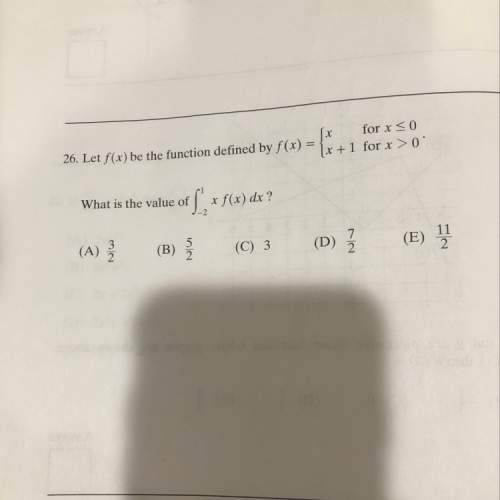
Advanced Placement (AP), 01.12.2021 05:50 lizethyyaritza16
All of the following statements about the Ottoman Empire in the period 1450–1750 are factually accurate. Which would most strongly support Barkey’s claim regarding the Ottoman state and toleration in the passage?
A. The Ottoman army increasingly relied on the contributions of the Janissary corps, which was mostly composed of soldiers of non-Turkic origin.
B. Some Ottoman sultans such as Selim I refused to accept the legitimacy of the Safavid rulers of Persia because they were Shi‘a Muslims.
C. Some Ottoman sultans such as Suleiman the Magnificent patronized Sufi mystics, whose heterodox practices were sometimes condemned by the Sunni religious elite.
D. The Ottoman government required any cases involving a dispute between Muslims and non-Muslims to be resolved according to Islamic law.

Answers: 3


Another question on Advanced Placement (AP)

Advanced Placement (AP), 26.06.2019 08:00
The following table lists the birth rate, death rate, and net migration rate for egypt over the past 20 years. on a coordinate plane, plot the birth rate data and death rate data for egypt. clearly, show each data point and label each curve. be sure to label the graph and axes. save a copy of your graph. then answer the following questions: (14 points) a. what was the annual growth rate for egypt in 1990? what is the estimated annual growth rate in 2010? be sure to show your work for each answer. b. where does egypt most likely fall on the demographic transition model? explain your answer using data from the table. describe two changes within egyptian society that would likely be necessary for egypt to transition to the next stage in the model. c. assuming egypt’s current birth rate, death rate, and net migration rate trends continue, what will the country’s annual growth rate likely be in 2030? if this growth rate is accurate, what would its doubling time be in 2030?
Answers: 2

Advanced Placement (AP), 26.06.2019 15:30
How was the structure of american society different in 1848 than it has been in 1800
Answers: 3

Advanced Placement (AP), 27.06.2019 05:40
Asapembassies differ from consulates in thata) compared to a consulate, an embassy is a smaller representation of a nation's government in a foreign country. b) consulates are permanent diplomatic missions generally located in a country’s capital, whereas a country may have a number of embassies in various cities. c) embassies are permanent diplomatic missions generally located in a country’s capital, whereas a country may have a number of consulates in various cities. d) embassies deal solely with economic diplomacy and trade relations, whereas consulates deal primarily with political and diplomatic relations with the host nation. e) countries establish embassies in another nation only if it recognizes the sovereignty of that country, whereas consulates exist without regard to recognition of a nation's sovereignty.
Answers: 2

Advanced Placement (AP), 27.06.2019 08:00
Territorial insects like spiders that fight off intruders would be expected to be
Answers: 1
You know the right answer?
All of the following statements about the Ottoman Empire in the period 1450–1750 are factually accur...
Questions


Mathematics, 28.10.2020 04:20

Mathematics, 28.10.2020 04:20

Mathematics, 28.10.2020 04:20


Social Studies, 28.10.2020 04:20


Mathematics, 28.10.2020 04:20


Health, 28.10.2020 04:20



Chemistry, 28.10.2020 04:20


Mathematics, 28.10.2020 04:20

Mathematics, 28.10.2020 04:20

Mathematics, 28.10.2020 04:20


Chemistry, 28.10.2020 04:20




